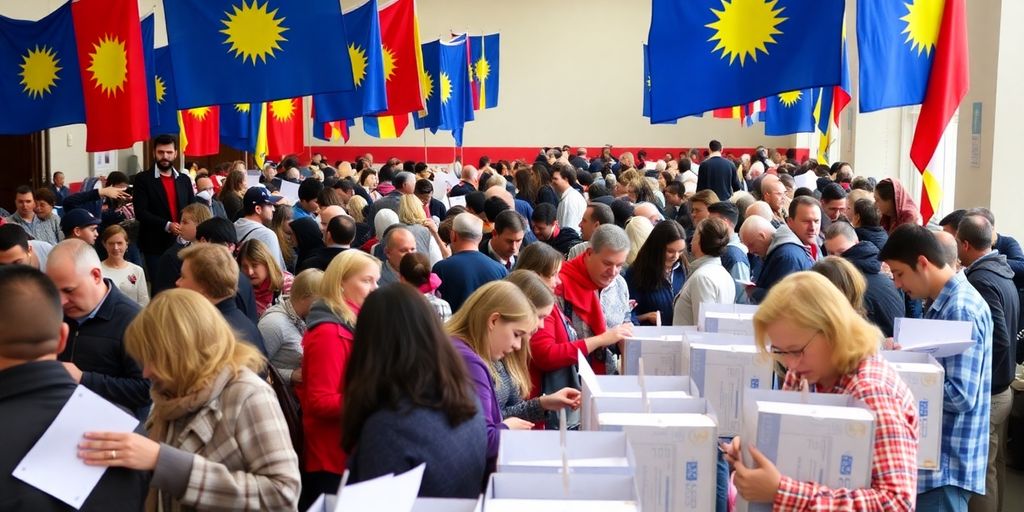Today, Kosovo is witnessing a significant event as it conducts its national parliamentary elections. With nearly two million eligible voters, the elections are set to determine the future political landscape of the country. Polling stations opened at 7 AM and will remain open until 7 PM, with exit polls expected to be released shortly after closing.
Key Takeaways
- Eligible Voters: 1,970,944
- Polling Hours: 7 AM – 7 PM
- Exit Polls: Available at 7 PM
- Election Threshold: 5%
- Previous Turnout: 48.8%
- Total Parliamentary Seats: 120 (10 reserved for Serbs, 10 for other minorities)
- Prime Minister Candidates: 4
- Political Parties/Groups Competing: 28
Election Context
The elections are crucial for Kosovo, a country that declared independence from Serbia in 2008. The political environment has been marked by tensions and challenges, particularly regarding the representation of minority groups. The parliament consists of 120 seats, with specific allocations for Serbs and other minorities to ensure their voices are heard in the legislative process.
Voter Engagement
In the last elections, voter turnout was recorded at 48.8%, a figure that organizers hope to improve this time around. Various initiatives have been launched to encourage participation, including outreach programs aimed at younger voters and minority communities. The electoral commission has emphasized the importance of every vote in shaping the future of Kosovo.
Political Landscape
This election features four candidates vying for the position of Prime Minister, representing a diverse array of political ideologies and platforms. The competition includes 28 political parties and groups, each presenting their vision for Kosovo’s future. To form a government, a party or coalition must secure a majority of 61 seats in parliament.
Expectations and Challenges
As the day unfolds, observers are keenly watching for voter turnout and the overall atmosphere at polling stations. The electoral process in Kosovo has faced challenges in the past, including allegations of irregularities and political tensions. However, the commitment to a democratic process remains strong among the electorate and political leaders alike.
Conclusion
The national parliamentary elections in Kosovo today represent a pivotal moment for the country. With a significant number of eligible voters and a diverse political landscape, the outcomes will likely have lasting implications for governance and stability in the region. As the polls close and results begin to emerge, all eyes will be on Kosovo to see how its citizens shape their future through the ballot box.






